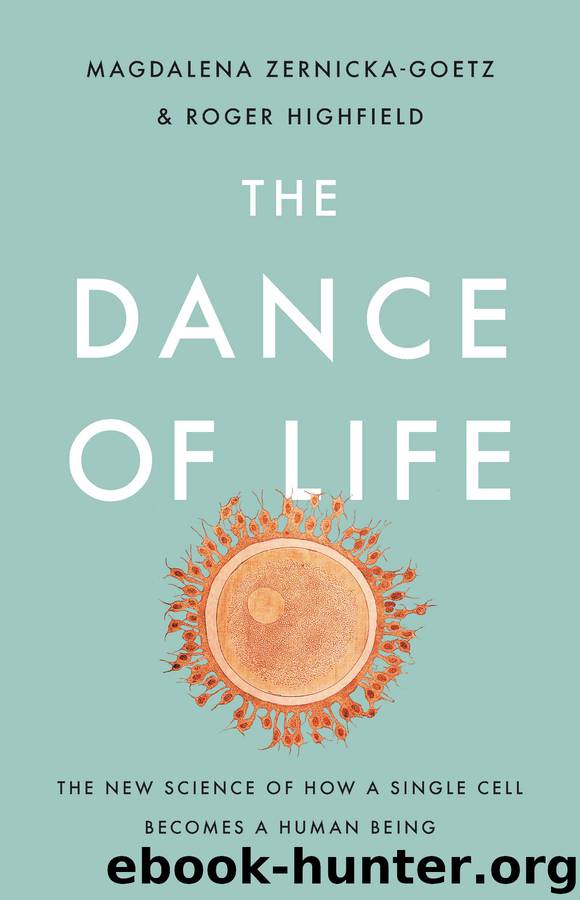The Dance of Life by Magdalena Zernicka-Goetz

Author:Magdalena Zernicka-Goetz
Language: eng
Format: epub
Publisher: Basic Books
Published: 2020-02-24T16:00:00+00:00
SHOULD WE REVISIT THE FOURTEEN-DAY LIMIT?
In December 2016, my team published a study that described the first human embryos to develop in the laboratory for an extra seven days, until day thirteen, and that same month I was invited to speak at a conference in London arranged by the Progress Educational Trust, an organization that promotes public understanding of embryo research. Also speaking at the conference, entitled “Rethinking the Ethics of Embryo Research: Genome Editing, 14 Days and Beyond,” was Mary Warnock. This was the first time we had met.
She admitted in a later interview with Roger Highfield that she was surprised it had taken more than three decades to discover how to get embryos to develop close to the fourteen-day boundary recommended in her 1984 report, though perhaps that simply reflected how she was not familiar with the details of science. There is an important shift in human biology that makes culturing a human embryo beyond its first week particularly difficult. A human embryo does not grow during its first week, but instead divides into smaller and smaller cells as it floats within the oviduct, an environment that is relatively simple and easy to mimic in the lab. A week after fertilization, the developing embryo implants within the mother’s womb to become properly attached.
It is only then that the embryo starts to grow, nourished by factors and hormones from the mother. This is therefore a much more complex and rich environment and one that has proved harder to replicate in laboratory conditions. Once we established a way to do it, we could uncover how the human embryo grows and how it establishes distinct tissues—the epiblast disc and amnion and the hypoblast—that start to interact with each other. The discussion at the conference in London, however, was also devoted to an ethical question raised by this research—if we could culture embryos beyond fourteen days, would it be ethically permissible to let human embryos develop beyond day fourteen?
I walked into the lecture hall at the Institute of Child Health, University College London, just in time to see Mary Warnock get up to discuss the fourteen-day rule and whether it should be revisited in the light of our technical breakthrough. She agreed that, yes, there was a great deal that could be learned by extending this boundary, but no, she felt it was too soon to call for an extension when we were only just approaching this limit.
She, as did I in my speech, argued that the public needs more time to understand the basics of what scientists can and want to do with embryos cultured for longer. After all, it took six years for the recommendations of the 1984 report to be translated into the 1990 act, which gave the public time to get accustomed to the idea of human embryo research. Studies conducted between seven and fourteen days would provide a new perspective on the causes of early pregnancy loss or ways to prevent or treat disorders arising during that period of development.
Download
This site does not store any files on its server. We only index and link to content provided by other sites. Please contact the content providers to delete copyright contents if any and email us, we'll remove relevant links or contents immediately.
| Cell Biology | Developmental Biology |
| Entomology | Marine Biology |
| Microbiology | Molecular Biology |
| Biostatistics |
Sapiens: A Brief History of Humankind by Yuval Noah Harari(14368)
The Tidewater Tales by John Barth(12651)
Mastermind: How to Think Like Sherlock Holmes by Maria Konnikova(7323)
Do No Harm Stories of Life, Death and Brain Surgery by Henry Marsh(6937)
The Thirst by Nesbo Jo(6932)
Why We Sleep: Unlocking the Power of Sleep and Dreams by Matthew Walker(6706)
Life 3.0: Being Human in the Age of Artificial Intelligence by Tegmark Max(5547)
Sapiens by Yuval Noah Harari(5366)
The Body: A Guide for Occupants by Bill Bryson(5080)
The Longevity Diet by Valter Longo(5058)
The Rules Do Not Apply by Ariel Levy(4957)
The Immortal Life of Henrietta Lacks by Rebecca Skloot(4576)
Animal Frequency by Melissa Alvarez(4461)
Why We Sleep by Matthew Walker(4434)
The Hacking of the American Mind by Robert H. Lustig(4375)
Yoga Anatomy by Kaminoff Leslie(4358)
All Creatures Great and Small by James Herriot(4311)
Double Down (Diary of a Wimpy Kid Book 11) by Jeff Kinney(4261)
Embedded Programming with Modern C++ Cookbook by Igor Viarheichyk(4173)
